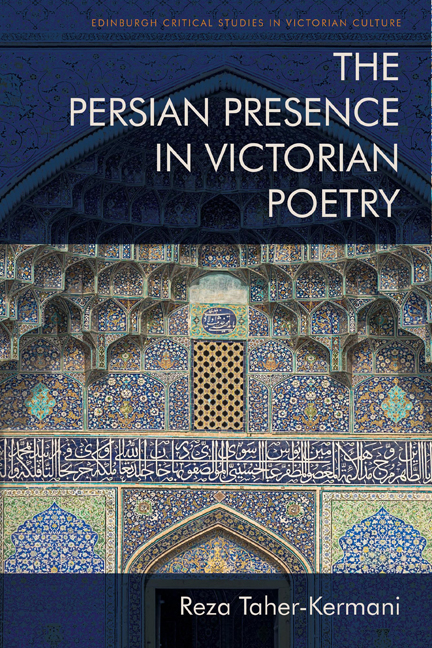Book contents
2 - Persia and Nineteenth-Century English Poetry
Published online by Cambridge University Press: 05 March 2024
Summary
The image of Persia in nineteenth-century English poetry was multifarious. It proliferated in a variety of contexts and was associated with a variety of thoughts. My purpose in this chapter is to chart this diversity, exploring the ways Persia figures in nineteenth-century English poetry. In doing so, I engage with the more dominant categories of knowledge behind the nineteenth-century English perception of Persia; these are the strands of thoughts that I have attempted to outline through my historical exploration and textual analysis of the previous chapter. My aim is to draw on these environments of knowledge to map out the ways Persia was perceived and re-presented in English poetry of the nineteenth century. My corpus consists of poems included in Literature Online (LION), with additional data from the British Library catalogue; though I only engage with the latter to gauge the number of times the works of Persia's classical poets were translated in the nineteenth century. Poems have been identified primarily through the use of certain keywords: alongside ‘Persia’ and its cognates, searches have been made for the names of individuals (such as Cyrus, Sa'di, or Khayyám) and places (Shiraz, Isfahan), together with a selection of words commonly associated with Persian history and culture (nightingale, bulbul).
Persia and its Cognates
A search on LION for the word ‘Persia’ and its variant spellings in poems published in the long nineteenth century (1780–1920) generates a list of 370 poems. A preliminary examination reveals that these texts, based on the degree and the intensity of their engagement with Persia, are of two kinds: first, poems that are written specifically on Persia and bear direct reference to it; second, poems in which Persia appears, not in the fore, but in the scenery behind the main object of contemplation. The latter group can be further divided into two smaller categories: first, poems in which the mention of Persia is inevitable, such as poetic retelling of the history of ancient Greece; second, poems in which Persia appears minimally, only once or twice, though, even in this category of texts, brevity does not necessarily mean insignificance. We see this, for instance, in the poetic manifestations of ‘Iran’, the modern denomination by which the people of Persia (Iran) have always referred to their country.
- Type
- Chapter
- Information
- The Persian Presence in Victorian Poetry , pp. 75 - 113Publisher: Edinburgh University PressPrint publication year: 2020



